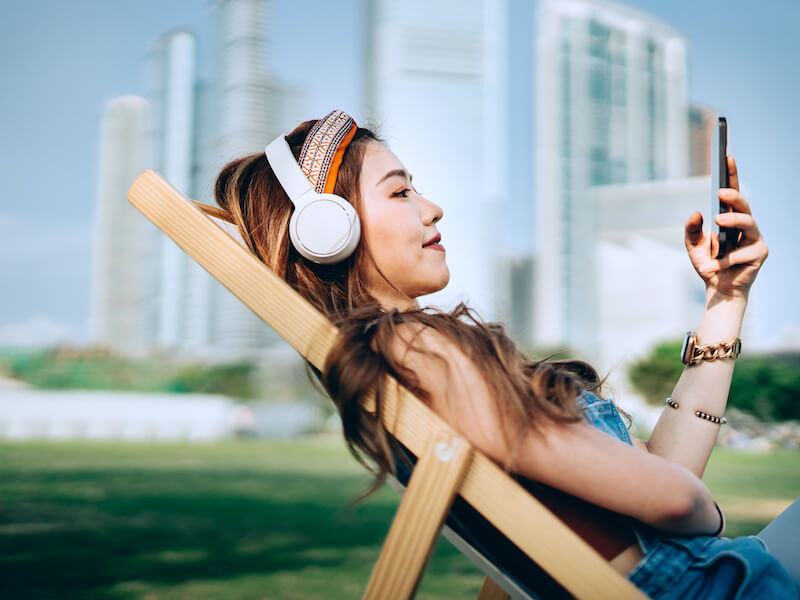
Music is an essential part of Aiden’s life. While he’s out running, he’s listening to Pandora, while working it’s Spotify, and he has a playlist for everything he does: cardio, cooking, gaming, you name it. His entire life has a soundtrack and it’s playing on his headphones. But the very thing that Aiden loves, the loud, immersive music, may be contributing to lasting damage to his hearing.
For your ears, there are healthy ways to listen to music and hazardous ways to listen to music. Regrettably, the majority of us pick the more dangerous listening choice.
How can hearing loss be the result of listening to music?
Over time, loud noises can lead to degeneration of your hearing abilities. We’re used to thinking of hearing loss as an issue associated with aging, but current research is discovering that hearing loss isn’t an intrinsic part of getting older but is instead, the outcome of accumulated noise damage.
Younger ears that are still developing are, as it turns out, more vulnerable to noise-related damage. And yet, young adults are more inclined to be dismissive of the long-term dangers of high volume. So there’s an epidemic of younger individuals with hearing loss thanks, in part, to high volume headphone use.
Can you listen to music safely?
Unrestricted max volume is clearly the “dangerous” way to listen to music. But simply turning down the volume is a less dangerous way to listen. Here are a couple of general recommendations:
- For adults: Keep the volume at no more than 80dB and for no more than 40 hours per week..
- For teens and young children: You can still listen for 40 hours, but the volume should still be below 75dB.
About five hours and forty minutes per day will be about forty hours every week. Though that might seem like a long time, it can feel like it passes quite quickly. Even still, most individuals have a fairly reliable idea of keeping track of time, it’s something we’re taught to do effectively from a very young age.
Monitoring volume is a little less user-friendly. On most smart devices, smartphones, and TVs, volume isn’t calculated in decibels. Each device has its own arbitrary scale. Maybe it’s 1-100. But perhaps it’s 1-16. You might not have a clue how close to max volume you are or even what max volume on your device is.
How can you listen to tunes while monitoring your volume?
It’s not very easy to tell how loud 80 decibels is, but luckily there are some non-intrusive ways to tell how loud the volume is. It’s even more difficult to understand the difference between 80 and 75dB.
That’s why it’s highly suggested you use one of many free noise monitoring apps. Real-time volumes of the noise around you will be available from both iPhone and Android apps. That way you can monitor the dB level of your music in real-time and make adjustments. Your smartphone will, with the correct settings, let you know when the volume gets too loud.
The volume of a garbage disposal
Your garbage disposal or dishwasher is usually around 80 decibels. That’s not too loud. It’s a significant observation because 80dB is about as loud as your ears can cope with without damage.
So pay close attention and try to avoid noise above this volume. If you do listen to some music above 80dB, don’t forget to minimize your exposure. Maybe minimize loud listening to a song rather than an album.
Listening to music at a higher volume can and will cause you to have hearing issues over the long term. You can develop hearing loss and tinnitus. The more you can be aware of when your ears are going into the danger zone, the more educated your decision-making will be. And safer listening will hopefully be part of those decisions.
Call us if you still have questions about the safety of your ears.